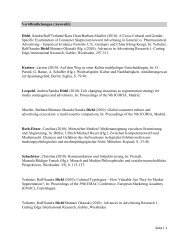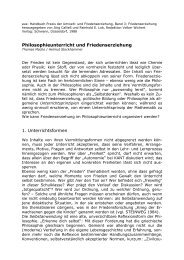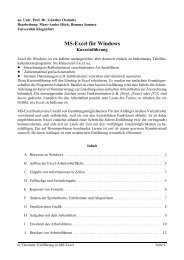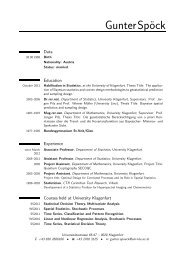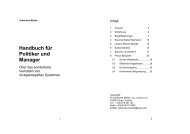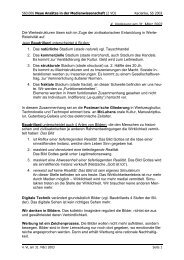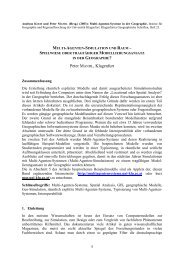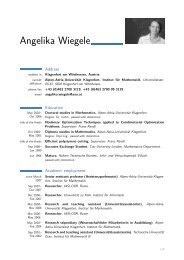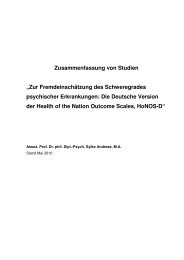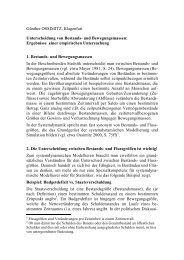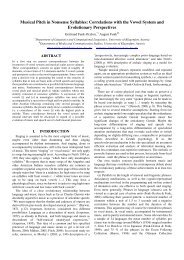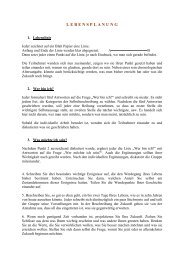State capitalism - The Presidency
State capitalism - The Presidency
State capitalism - The Presidency
- No tags were found...
Create successful ePaper yourself
Turn your PDF publications into a flip-book with our unique Google optimized e-Paper software.
SPECIAL REPORTSTATE CAPITALISM<strong>The</strong> acquisitive state2Biggest IPOs since 2005National and/or state-controlledValue,Company Industry Year $bnAgricultural Bank of China Finance 2010 22.1Industrial & Commercial Finance 2006 21.9Bank of ChinaAIA (Hong Kong) Insurance 2010 20.5Visa (United <strong>State</strong>s) Finance 2008 19.7General Motors Automotive 2010 18.1Bank of China Finance 2006 11.2Dai-ichi Life Insurance (Japan) Insurance 2010 11.1Rosneft (Russia) Oil & gas 2006 10.7Glencore International (Switzerland) Mining 2011 10.0China Construction Bank Finance 2005 9.2Electricité de France Utility & energy 2005 9.0VTB Group (Russia) Finance 2007 8.0Banco Santander Brasil Finance 2009 7.5China <strong>State</strong> Construction Construction 2009 7.3Engineering CorporationIberdrola Renovables (Spain) Utility & energy 2007 6.6Source: Dealogic2 ternational companies are not always successful: BP, for example,will not rush into any future deals with Russia’s Rosneft. Butthey are plugging national energy companies into the globalmarket for people and ideas and closing the gap between thestate-run and the private sector.<strong>State</strong> <strong>capitalism</strong> also has a collection of companies that sitat the opposite end of the ownership scale from national energycompanies: national champions that formally are privatelyowned but enjoy a huge amount of either overt or covert supportfrom their respective governments. Sometimes such governmentsprefer to exercise their patronage at arm’s length becausethey have little experience of the sector; this is often true ofthe IT industry in China. Sometimes they oer their patronage toa private company after it has become a winner. Either way theend result is the creation of a new class of state companies: nationalchampions that may not be owned by governments butare nevertheless closely linked to them.China’s Lenovo likes to think of itself as a private-sectorcomputer company, but the Chinese Academy of Sciences providedit with seed money (and still owns lots of shares), and thegovernment has repeatedly stepped in to smooth its growth, notleast when it acquired IBM’s personal-computer division for$1.25 billion in 2004. Brazil’s Vale also considers itself a privatesectormining company, but the government treats it as a nationalchampion and recently forced its boss, Roger Agnelli, to stepaside because it did not like his plans to sack workers. <strong>The</strong>re is along list of national champions that operate in the shadow of thestate, including China’s Geely in cars, Huawei in telecoms equipmentand Haier in white goods.Deep pockets3Largest sovereign-wealth fundsAssets, December 2011, $trn0 0.4 0.8 1.2China*UAENorwaySaudi ArabiaSingaporeKuwaitHong KongRussiaQatarAustraliaSource: SovereignWealth Fund Institute*Estimate<strong>The</strong> wealth of nations<strong>State</strong> capitalists are not just running companies; they arealso managing huge pools of capital in the form of sovereignwealthfunds (SWFs). Leviathan is becoming a nance capitalistas well as a captain of industry.<strong>The</strong> sovereign-wealth business was pioneered decades agoby the petrostates and by Singapore. <strong>The</strong> Kuwait Investment Authoritywas set up in 1953. But more recently the business hasbeen turbocharged by two developments: the surge in energyprices and China’s accumulation of a vast current-account surplus.Today’s SWFs account for some of the world’s biggest poolsof capital. <strong>The</strong> Abu Dhabi Investment Authority controls $627billion, putting it in the same league as some of the largest Americanmutual funds. Saudi Arabia’s SAMA foreign-holdings companyin December 2011 controlled $473 billion, China’s SAFE InvestmentCompany $568 billion and China InvestmentCorporation $410 billion. In all, the world’s sovereign-wealthfunds control about $4.8 trillion in assets, a gure that is likely torise to $10 trillion by the end of this decade.Sovereign-wealth funds come in two varieties: savingsfunds intended to nd productive homes for investments, anddevelopment funds that also promote economic development.China Investment Corporation has focused on producinga portfolio of nancial assets, for example, whereas Abu Dhabi’svarious investment funds have been more interested in fundingthe region’s economic development to prepare for the day whenthe oil runs out. In 2008 Abu Dhabi created a fund that specialisesin investing in high-tech companies, both at home andabroad. In its rst big deal it formed an alliance with AdvancedMicro Devices, an American chipmaker, to create a local semiconductormanufacturer, GLOBALFOUNDRIES.<strong>The</strong> nancial crisis of 2007-08 shifted the argument in favourof the second kind of fund. Soon after China InvestmentCorporation was set up in September 2007 it saw the money ithad put into American investment banks turn to ashes. PetrostateSWFs have increased their emphasis on investing in scienceand research. Sovereign-wealth funds in Kuwait, Qatar, Russia,China, Kazakhstan and Ireland have been asked to support domesticnancial institutions. Almost all funds are taking a moreactive interest in the way the companies they own are managed,for example by demanding a seat on the board.Nasser Saidi, chief economist of the Dubai International FinancialCentre, argues that the rise of the emerging world will inevitablyforce the global nancial system to change, from a huband-spokesmodel (with London and New York acting as thehubs) to a spider’s-web model of many interconnected hubs.<strong>The</strong> 2007-08 crisis has dramatically speeded up this process:SWFs now like to do much of their business with each otherrather than going through rich-world intermediaries. In 2009China Investment Corporation and the Qatar Investment Authoritysigned a joint-venture agreement. In the following year aconsortium of nine funds, including the Government of Singapore’sInvestment Corporation, China Investment Corporationand the Abu Dhabi Investment Council, invested $1.8 billion inBTG Pactual, a Brazilian investment bank spun o from UBS, aSwiss bank.It is possible for a countryto have any or all of theseinstitutions in place withoutbeing a member of the statecapitalistclub. Norwayboasts the world’s 13th-biggestoil company by revenue,Statoil, and its third-biggestsovereign-wealth fund, theGovernment Pension Fund,with $560 billion in assets,but requires both of them tobehave like regular companies.<strong>The</strong>se various elementscan also be put together in avariety of ways. <strong>The</strong> nextsection will look at some ofthe dierent forms that state<strong>capitalism</strong> can take. 7<strong>The</strong> Economist January 21st 2012 5
SPECIAL REPORTSTATE CAPITALISMA choice of models<strong>The</strong>me and variations<strong>State</strong> <strong>capitalism</strong> is not all the sameIT IS EASY for a casual visitor to China to be fooled intothinking that he is in a normal capitalist country. <strong>The</strong> big citiesare dotted with Starbucks and Kinkos. <strong>The</strong> newspapers runstories about small businesspeople falling prey to loan sharks.Business executives are whisked around in Mercedes cars withblackened windows. <strong>The</strong>ir wives and mistresses idle their afternoonsaway in doga classesyoga that includes the pet dog.But the form of <strong>capitalism</strong> on display is highly idiosyncratic.Company bosses are routinely moved to rival companieswithout any explanation. Company headquarters have spaceset aside for representatives of the armed forces. And the deeperyou look, the queerer things become. In his indispensable book,<strong>The</strong> Party, Richard McGregor points out that the bosses of China’s50-odd leading companies all have a red machine sittingnext to their Bloomberg terminals and family photographs thatprovides an instant (and encrypted) link to the CommunistParty’s high command.What might be called the party state exercises a degree ofcontrol over the economy that is unparalleled in the rest of thestate-capitalist world. <strong>The</strong> party has cells in most big companiesinthe private as well as the state-owned sectorcompletewith their own oces and les on employees. It controls the appointmentof captains of industry and, in the SOEs, even corporatedogsbodies. It holds meetings that shadow formal boardmeetings and often trump their decisions, particularly on staappointments. It often gets involved in business planning andworks with management to control workers’ pay.<strong>The</strong> party state exercises power through two institutions:the <strong>State</strong>-Owned Assets Supervision and Administration Commission(SASAC) and the Communist Party’s Organisation Department.SASAC, which holds shares in the biggest companies,is the world’s largest controlling shareholder and the state-capitalistinstitution par excellence. It has been spearheading thepolicy of creating national champions by consolidating andpruning its portfolio: the number of companies under its supervisionhas declined from 198 in 2003 to 121 today. It has also beenimplementing the party’s policy of creating a harmonious societyby regulating pay. In 2009 the average SOE boss earned$88,000 and the highest-paid, the chairman of China Mobile,$182,000. High pay in SOEs has been a big source of disharmony.SASAC can be something of a paper tiger. It has been tryingfor years to force the SOEs to pay higher dividends to the government,with only limited success. Similarly, nobody believes thatthe SOE bosses’ nominal pay bears any relation to their real remuneration.However, nobody would apply the term paper tigerto the Organisation Department. Created by Chairman Maoin 1924, it has become the world’s mightiest human-resources department.It appoints all the senior gures in China Inc. In 2004 itreshued the heads of the three biggest telecoms companies. In2009 it rotated the bosses of the three biggest airlines. In 2010 itdid the same to the chiefs of the three biggest oil companies, eachof which is a Fortune 500 company. Even the most successful topexecutives of China’s SOEs are cadres rst and company mensecond. <strong>The</strong>y care more about pleasing their party bosses thanabout the global market.<strong>The</strong> party state has reinforced its power by creating verticalbusiness groups. In most emerging markets (including HongKong next door) business groups are horizontal: companiessprawl into adjacent businessestelecoms companies into hotels,shipping companies into propertyin order to exploit theirlocal connections. In China business groups focus on particularindustries. <strong>The</strong> party state encourages companies to band togetherinto industry clusters by giving them preferential access tocontracts and stockmarket listings. It also encourages them to establishsubdivisions such as a domestic holding company, a -nance company, a research institute and a foreign division. SA-SAC typically owns 100% of the shares in the holding company.<strong>The</strong> holding company in turn owns a smaller proportion of 16 <strong>The</strong> Economist January 21st 2012
SPECIAL REPORTSTATE CAPITALISM2sharessay 60%in the foreign division. This makes it possiblefor business groups to present lots of dierent facesfor instance,an inward-looking one in the form of the holding company andan outward-looking one in the form of the international division.It also allows the party state to exercise control of an entirechain of companies. Thus PetroChina might look like a regularWestern company, with a listing on the New York Stock Exchange.But in fact it is the international division of a huge groupcalled China National Petroleum Corporation, the foreign headof a dragon whose body and raison d’être lie in Beijing.<strong>The</strong> Kremlin as capitalist-in-chiefIn Russia the past decade has seen a remarkable strengtheningof the power of the state, which during Boris Yeltsin’s periodof wild privatisation looked as if it might crumble. <strong>The</strong> Kremlinhas turned scattered companies into national champions.Aeroot reabsorbed regional airlines spun o in the 1990s. RussianTechnologies rolled up hundreds of state companies, manyof which had little to do with technology, into a vast conglomerate.<strong>The</strong> government has also renationalised industries that wereprivatised in the 1990s. Rosneft, an oil company, took over mostof Yukos from Mikhail Khodorkovsky, once Russia’s richest man,and Gazprom bought Sibneft from Roman Abramovich.As a result the Russian state once again controls the commandingheights of the economyonly this time through shareownership rather than directly. <strong>The</strong> state holds huge chunks ofthe shares of the country’s biggest and most strategic companies,including Transneft, a pipeline company; Sukhoi, an aircraftmaker;Rosneft; Sberbank; Unied Energy Systems, an electricitygiant; Aeroot; and Gazprom.<strong>The</strong> Kremlin has also established control over Russia’s oligarchs,reducing once-mighty rottweilers to shivering chihuahuasand transforming supposedly private companies into organsof the state. <strong>The</strong> brutal persecution and imprisonment ofMr Khodorkovsky helped to instil obedience, and periodically<strong>The</strong>se varieties of state <strong>capitalism</strong> all have one thing incommon: politicians have far more power than they dounder liberal <strong>capitalism</strong>the state waves a bloody stick at the oligarchs to keep them intheir place. <strong>The</strong>y dutifully pick up the tab for public works (suchas the 2014 Winter Olympics) and keep out of politics.<strong>The</strong> private-sector oligarchs have been replaced at the heartof the economy by state-sector bureaugarchs, most of them formerKGB ocials who have close ties with Vladimir Putin andhave spent the past decade steadily accumulating power(though not personal stakes in the businesses). Mr Putin, currentlythe prime minister, is chairman of the supervisory boardof Vnesheconombank, a state development bank. Igor Sechin,the deputy prime minister, was chairman of Rosneft until DmitryMedvedev, Russia’s president, ordered government ministersto step down as chairmen of state companies’ boards of directorslast year to tidy things up. Such people form the board ofRussia Inc, a company that is headed by Mr Putin, dominated bythe KGB and dedicated to controlling the country’s most lucrativeassets, from oil and gas to nuclear power, diamonds, metals,arms, aviation and transport.<strong>The</strong> result is a highly unusual form of <strong>capitalism</strong>, dominatedby a handful of gigantic rms and controlled by a clique ofsecurity ocials. Two state-controlled compnaies, Sberbank andGazprom, account for more than half of the turnover of the Russianstock exchange. Russian <strong>capitalism</strong> would have been concentratedeven if the Kremlin had not been so ruthless. Oil andgas companies, which account for 20% of the country’s GDP and60% of its exports, thrive on economies of scale and scope. Poorinfrastructure encourages vertical integration; for example, metalcompanies have been buying ports to ensure that they can gettheir goods out on time. Still, having so much political power inso few hands has enormously increased this concentration.This quintessentially Russian form of state <strong>capitalism</strong> hasnevertheless been embracing the global market. Oil and gascompanies have been buying similar rms abroad or listing onforeign stock exchanges. In July 2006 Rosneft raised $11billion byselling 15% of its shares on the London stock exchange. Russia’ssovereign-wealth funds have been particularly keen on buyingforeign companies, in part because Russia’s own business practicesare so murky. And Russian businesspeople have bought lotsof property abroad, particularly in London.Petrostate <strong>capitalism</strong>Oil and water may not mix, but oil and royalty mix verywell to create petrostate <strong>capitalism</strong>. Middle Eastern monarchshave been using oil to keep themselves in funds for decades. Butthese days some of them are taking a remarkably sophisticatedapproach to managing their economies, embracing professionalmanagement.<strong>The</strong> al-Maktoums, who rule Dubai,created Dubai World, a huge state-ownedholding company, to run their projects.<strong>The</strong> Saudis have handed the day-to-daymanagement of their biggest companies,Saudi Aramco and Saudi Basic Industries,to professional managers. <strong>The</strong> petro-royalshave also become enthusiastic practitionersof state-sponsored modernisation.<strong>The</strong> al-Maktoums have been trendsettersbecause they never had much oil to beginwith. It now accounts for under 5% of theemirate’s GDP. <strong>The</strong>y have provided Dubaiwith a world-class airport, an important -nancial hub and a scattering of knowledgevillages and silicon centres. Evenconservative Saudi Arabia claims to bebuilding four tech-enabled cities.But the Gulf model of modernisation from above has beenplagued by two familiar curses, cronyism and bubbles. <strong>The</strong>re isonly so much that professional managers can do to prevent thelocal royals from damaging the region’s companies. Bahrain’sGulf Air and Kuwait Airways have been albatrosses. DubaiWorld accumulated $80 billion in debt building the world’s tallestskyscraper and a palm-shaped articial island. <strong>The</strong> state ofDubai had to be rescued by neighbouring Abu Dhabi.<strong>The</strong> problems of cronyism and corruption have provedeven more toxic in other parts of the Middle East. In Egypt HosniMubarak, the president until the Arab spring, handed the managementof the state companies to incompetent people whilemaking sure his cronies did well out of privatisation. In AlgeriaSOEs are notorious dens of patronage and typically run at only50% of capacity. In Syria the overwhelming majority of the country’stop 250 SOEs have been in the red for many years.Leviathan as a minority investorBrazil is the most ambiguous member of the state-capitalistcamp: a democracy that also embraces many of the features ofAnglo-Saxon <strong>capitalism</strong>. But it is worth examining for two reasons.First, it is a weather vane for state <strong>capitalism</strong>, a leading privatiserin the 1990s that is now forcing its biggest mining com- 1<strong>The</strong> Economist January 21st 2012 7
SPECIAL REPORTSTATE CAPITALISM2 pany, Vale, to keep workers it does not need, and obliging abunch of smaller companies to embark on subsidised consolidation.And second, it has invented one of the sharpest new toolsin the state-capitalist toolbox.Brazil has spent most of its modern history in pursuit ofstate-driven modernisation. A survey in the early 1980s showedthat it had more than 500 SOEs. Brazil launched a privatisationdrive in the 1990s to deal with hyperination, surging decitsand general sclerosis. But more recently it has moved in a new direction.<strong>The</strong> government has poured resources into a handful ofstate champions, particularly in natural resources and telecoms.It has also produced a new model of industrial policy: replacingdirect with indirect government ownership through the BrazilianNational Development Bank (BNDES) and its investmentsubsidiary (BNDESPar); and swapping majority for minorityownership by acquiring shares in a broad spectrum of dierentcompanies. Sergio Lazzarini, of Brazil’s Insper Institute of Educationand Research, and Aldo Musacchio, of Harvard BusinessSchool, have christened this model Leviathan as a minorityshareholder.This minority-shareholder model has several advantages.It limits the state’s ability to use SOEs to reward clients or to pursuesocial policies. Private shareholders have just enough powerto kick up a fuss. But it also gives the state more inuence for itsmoney. By 2009 BNDESPar’s holdings were worth $53 billion, orjust 4% of the stockmarket. Yet the state spoke with a loud voiceacross corporate Brazil. Messrs Lazzarini and Musacchio havealso shown, in a detailed study of 296 rms traded on the SãoPaulo stock exchange between 1995 and 2003, that this modelcan increase rms’ returns on their assets. Brazilian companiestypically underinvest in productivity-boosting equipment becausethe capital markets are so underdeveloped. <strong>State</strong> holdingsprovide them with money that they cannot get elsewhere.Yet this clever version of state <strong>capitalism</strong> is currently in dangerof overreaching itself. Petrobras’s discovery, in November2007, of huge deposits of oil buried deep beneath the Atlanticseabed has lled politicians’ heads with dreams of grand projects.<strong>The</strong> shift in the world’s balance of power from America toChina has also helped to persuade many Brazilians that the futurelies with state <strong>capitalism</strong>. <strong>The</strong> result has been a burst of unwiseinterventionism. <strong>The</strong> government is trying to force Petrobrasto use expensive local equipment suppliers despite doubtsabout their competence. It removed Roger Agnelli from his postas CEO of Vale despite his outstanding record. It has also taken tocreating national champions through forced mergers: BRF (Sadiaand Perdigão) in the food sector; Oi (which was made to buy BrasilTelecom) in telecoms; Fibria (VCP and Arucruz) in pulp andpaper. Even the most sophisticated models of state <strong>capitalism</strong>are not safe from over-zealous politicians.<strong>The</strong> new elite<strong>The</strong>se varieties of state <strong>capitalism</strong> all have one thing incommon: politicians have far more power than they do underliberal <strong>capitalism</strong>. In authoritarian regimes they can restructureentire industries at the stroke of a pen. Even in democratic oneslike Brazil they can tell the biggest companies what to do. In Chinaparty hacks can nd themselves running the country’s biggestcompanies (and SOE bosses sometimes get big jobs in theparty). In Russia they may be running the biggest companieswhile also sitting in the cabinet. But there are nevertheless limitsto Leviathan’s power.<strong>State</strong>-owned enterprises often have a good deal of operationalfreedom. Edward Steinfeld, a professor at the MassachusettsInstitute of Technology who spent many years serving onthe board of China National Oshore Oil Corporation, recallsthat the company’s relationship with its political bosses hadless to do with rigid top-down control than with mixed signals,ambiguity and even outright silence.Such enterprises can also wield a lot of inuence over theirsupposed political masters. China’s SOEs have successfully frustratedattempts to make them pay more dividends. <strong>State</strong>-ownedenergy companies arguably have more inuence over energypolicy in state-capitalist countries than private energy companieshave in liberal countries. Over a drink Russians will happilyspeculate about whether the Kremlin runs Gazprom or Gazpromruns the Kremlin.<strong>State</strong>-owned enterprises are also producing a more sophisticatedgeneration of managers: people who have learned aboutbusiness in the world’s best business schools, who have workedabroad and have a far less blinkered view of the world than theirpredecessors. Katherine Xin, of China Europe International BusinessSchool (CEIBS) in Shanghai, says that many SOEs want theirmanagers to have a world-class businesseducation. Baosteel has been sending itssenior managers on executive MBAcourses for more than a decade. It alsobrings in academics from Switzerland’sIMD business school to provide tailormadecourses. CNPC has been sendinghigh-yers to get MBAs in America since1999. Ms Xin points out that the Chineseversion of the Harvard Business Review isa must-read in the upper echelons of stateownedcompanies.Members of this new generation ofmanagers are changing the managementof the public sector, too, as they alternatebetween the corporate domain and government.<strong>The</strong>re are currently 17 prominentChinese political leaders who have heldsenior positions in large SOEs. Conversely,27 prominent business leaders are servingon the party’s Central Committee. If state<strong>capitalism</strong> allows politicians to shapecompanies, it also allows companies toshape politicians. 78 <strong>The</strong> Economist January 21st 2012
SPECIAL REPORTSTATE CAPITALISMPros and consMixed bagSOEs are good at infrastructure projects, not so goodat innovationTHE HIGH-SPEED train journey from Beijing to Shanghai isa revelation to a visitor used to Britain’s dilapidated railwaysystem. Young women in neat red uniforms take pity on a foreignerand guide him to his seat. <strong>The</strong> train quickly accelerates toits cruising speed of 300km an hour and reaches Shanghai,1,318km (820 miles) away, in under ve hours. <strong>The</strong> new stationthere is a festival of sweeping curves.<strong>The</strong> feeling of travelling so fast for so long is disconcerting.<strong>The</strong> countryside whizzes by in a blur, though the ride is impeccablysmooth. Even more disconcerting for a Westerner is the feelingthat he is being left in the dust. This is no prestige project forthe Chinese elite. <strong>The</strong> queue to get on thetrain is more like a scrum. <strong>The</strong> smell of lastnight’s alcohol hangs in the air. For manyChinese people high-speed trains are becominga normal convenience.A visit to the headquarters of RussianRailways can feel a bit like a voyageback in time. <strong>The</strong> guards wear the peakedhats and gru manners of the Soviet era.A display shows the children of railwayworkers triumphing in chess and athletics.Vladimir Yakunin, the company’sboss, started his career with the KGB. Heconcedes that his company is a giant of anorganisation: it has 1.2m employees,20,000 stations, 86,000km of track, a networkof schools and health clinics andeven an equestrian school. He also agreesthat the state’s inuence is all-pervasive. Three white telephonesnext to his desk provide him with direct access to the Kremlin (hesays he has a separate line to his old friend, Mr Putin). He cannoteven sell one of the chairs that surround his vast table withoutthe government’s permission.Yet Mr Yakunin is a dynamo of a man who has changed recruitmentpolicies to attract high-yers, introduced total qualitymanagement and brought in Ernst & Young, an internationalrm of accountants, to audit the books. He also points out thatsome of the oddities of his company, such as its schools and clinics,have been around for a century and derive from the dicultiesof running a railway in the middle of nowhere. <strong>The</strong>re is nosuch thing as pure <strong>capitalism</strong> or pure socialism, he argues; onlymore or less sensible solutions to practical problems.Not as simple as it looks<strong>State</strong> capitalists like to set China’s recent successes againstAmerica’s mounting failures. <strong>The</strong>y add that Uncle Sam wasquick to nationalise General Motors when it needed to. Antistatecapitalists argue that Russia is a Potemkin village and Chinaa paper tiger. For instance, China’s high-speed rail looked lesswonderful last year when 39 people were killed and about 200injured in a collision in China’s eastern Zhejiang province, afterwhich maximum speeds were reduced across the country.A balanced assessment of state <strong>capitalism</strong> has to allow forthree caveats. <strong>The</strong> rst is that there is no clear dividing line betweenstate-owned and private companies. Private championssuch as Huawei, the telecoms giant, have repeatedly beengiven government help. This makes it hard to produce precisecalculations about the productivity of the two sectors. Second,ownership is not the only thing in play. Some of the problems,and the successes, of state <strong>capitalism</strong> have more to do with rapiddevelopment than with state ownership. Third, everything dependson context. It is quite possible for state <strong>capitalism</strong> to workwell in some areas (eg, infrastructure) and badly in others (eg,consumer goods). It is also possible for it to boost growth at onestage of development and impede it at another.<strong>State</strong> <strong>capitalism</strong>’s most obvious achievements are in infrastructure.China has produced a large number of world infrastructurerecords, such as the largest hydroelectric project, theThree Gorges dam, and 6,400km of high-speed rail. It has alsoscattered new airports and railway terminals across the land.Even Russia’s more rough-and-ready railway system workspretty well, despite punishing weather.BCG, a consultancy, argues that this infrastructure boomwill continue for some time yet. Over the next 20 years the BRICcountries will account for more than half of the growth in roadtravel and more than 40% of the growth in air travel. <strong>The</strong> consultancyalso points out that state institutions are well placed tofeed this boom. Sovereign-wealth funds are favouring infrastructureprojects to avoid the volatility of the stockmarket. Chinesecompanies are building roads and railways in Africa, powerplants and bridges in South-East Asia and schools and bridges inAmerica. In the most recent list of the world’s biggest global contractors,compiled by an industry newsletter, Chinese companiesheld four of the top ve positions. China <strong>State</strong> ConstructionEngineering Corporation has undertaken more than 5,000 projectsin about 100 dierent countries and earned $22.4 billion inIt is quite possible for state <strong>capitalism</strong> to work well insome areas (eg, infrastructure) and badly in others (eg,consumer goods)revenues in 2009. China’s Sinohydro controls more than half theworld’s market for building hydro power stations.<strong>State</strong> <strong>capitalism</strong> has also enjoyed some success in tacklingsecond-generation infrastructure problems such as building theinformation superhighway and mandating higher environmentalstandards. China’s mobile-phone network is the world’s largest,yet it suers from fewer dropped calls or areas with no signalthan America’s. China has the world’s biggest number of internetusers, 420m, of whom 364m have broadband. It has alsoturned itself into a pioneer in some areas of green energy: it is theworld’s largest exporter of solar panels, for example. Big bets ongreen technology can easily turn into big mistakes. But generallyinfrastructure belongs on the positive side of the ledger.<strong>State</strong> <strong>capitalism</strong> has also been successful at producing nationalchampions that can compete globally. Two-thirds ofemerging-market companies that made it onto the Fortune 500list are state-owned, and most of the rest enjoy state largesse ofone sort or another. Governments can provide companies withthe resources that they need to reach global markets. <strong>The</strong>y canalso insist on mergers that produce global giants.<strong>The</strong> obsession with national champions can be dangerous:mating two dinosaurs seldom produces a gazelle. But championshave their uses. <strong>The</strong>y can boost national pride, they can ensurethat local companies can compete for the best and thebrightest with foreign multinationals and they can help emergingcountries to establish global standards rather than playing by 1<strong>The</strong> Economist January 21st 2012 9
SPECIAL REPORTSTATE CAPITALISM2other people’s rules. <strong>The</strong> Chinese are determined to do this withthe growing market for the internet of things.<strong>The</strong> most interesting argument in favour of state <strong>capitalism</strong>is that it makes it easier for emerging countries to learn from therest of the world. National champions are the corporate world’sgreatest learning machines. To produce them you need to studythe best of the breed. And once you have them you can deepenyour learning still furtherby listing them on foreign exchanges(which introduces you to the world’s sharpest bankers and analysts),or by taking over foreign companies (which can provideyou with rare expertise). China’s Geely International got accessto some of the world’s most advanced carmaking skills when ittook over Volvo for $1.8 billion. Shanghai Electric Group enrichedits engineering knowledge by buying Goss Internationalfor $1.5 billion and forming joint ventures with Siemens and Mitsubishi.Saudi Basic Industries Corporation has become morecosmopolitan by purchasing companies in dozens of countries.All this success is producing much I-have-seen-the-futureand-itworks euphoria. <strong>The</strong> bosses of state industries like to arguethat they have the best of both worldsthe ability to plan forthe future but also to respond to fast-changing consumer tastes.Even outsiders can sound giddy. Ms Xin of CEIBS points out thatthe best state companies are innitely better than their predecessorsjust ve years ago. China Mobile, she says, is as good as almostany of its rivals in the West. Edmund Tse, of Booz & Company,argues that the system is much more exible than it looksat rst sight.In October 2007 China’s president, Hu Jintao, unveiled hishighest priority for the future at the 17th National Congress of theCommunist Party in the Great Hall of the People: improving thecountry’s capacity for independent innovation. China had alreadybeen working hard at this. <strong>The</strong> government had invitedWestern champions such as Microsoft and Google to establishresearch facilities, instructed domestic champions to be more innovativeand poured money into science and technology clusters(Beijing’s Zhongguancun Science Park was already home tonearly 20,000 high-tech enterprises as Mr Hu spoke). But it neededto redouble its eorts in the future.Other state-capitalist countries are equally keen on independentinnovation. <strong>The</strong> Russian elite is excited about Skolkovo,a high-tech park-cum-enterprise-zone just outside Moscow. Skolkovois supposed to act as a factory for indigenous technologistsand entrepreneurs, a magnet for foreign multinationals, an inspirationfor young people, an insurance policy against over-relianceon energy and a bridge between the scientic and the businessworlds. Dubai contains a knowledge village, a media city,an IT corridor and a huge nance centre.<strong>The</strong> downsidesYet the odds on any of these eorts succeeding are low.Governments are good at providing the seedcorn for innovation:America’s, for instance, provided some of the funding for StanfordUniversity and even helped to found the rst venture-capitalcompany. But they are bad at turning seedcorn into bread.Josh Lerner, of Harvard Business School, describes state-sponsoredinnovation as a boulevard of broken dreams, a termmore often applied to the entertainment industry. Malaysia’s$150m BioValley, which opened in 2005, is now known as theValley of the Bio Ghosts. Dubai has produced more red inkthan new products. <strong>The</strong> architects of Skolkovo worry that DmitryMedvedev’s impending retirement from the presidency willdoom their project before they have opened the rst building.Dan Breznitz and Michael Murphee, of the Georgia Instituteof Technology, argue that the pursuit of indigenous innovationcould prove to be a distraction. Foxconn, a huge Taiwaneseregisteredelectronics group, has an unrivalled ability to massproduceiPads and the like; it employs 270,000 people in its factorycomplex in Shenzhen. Huawei is a master of improving onother people’s technology and bringing it to market at lightningspeed. China’s Pearl River delta is swimming with small companiesthat dominate tiny market niches. China’s universitiesmass-produce graduates in disciplines that have been forgottenin the West, such as mining and heavy engineering. Chinawould be better o exploiting these advantages rather than tryingto build the next Silicon Valley.Of productivity and power<strong>The</strong>re is striking evidence that state-owned companies arenot only less innovative but also less productive than their privatecompetitors. <strong>The</strong> Beijing-based Unirule Institute of Economicsargues that, allowing for all the hidden subsidies such as freeland, the average real return on equity for state-owned companiesbetween 2001 and 2009 was -1.47%. Older studies suggestthat productivity decreases with every step away from 100%private to 100% state-owned. An OECD paper in 2005 noted thatthe total factor productivity of private companies is twice that ofstate companies. And a study by the McKinsey Global Institutein the same year found that companies in which the state holds aminority stake are 70% more productive than wholly stateownedones.But poor productivity has not stopped them from makinglots of money. In 2009 just two Chinese state-owned companiesChinaMobile and China National Petroleum Corporationmademore prots ($33 billion) than China’s 500 most profitableprivate companies combined. In 2010 the top 129 Chinese110 <strong>The</strong> Economist January 21st 2012
SPECIAL REPORTSTATE CAPITALISM2SOEs made estimated net prots of $151 billion, 50% more thanthe year before (in many cases helped by near-monopolies). Inthe rst six months of 2010 China’s four biggest state commercialbanks made average prots of $211m a day.<strong>State</strong> companies have been gobbling up private ones. <strong>The</strong>yhave also been gobbling up capital. <strong>State</strong>-owned companies inChina pay interest of only 1.6% when they borrow from statebanks, but private ones are charged 4.7%if they can get a loan atall. In 2009 private rms accounted for only 2% of China’s ocialoutstanding loans. <strong>The</strong> result has been an epidemic of bankruptciesand suicides in the private sector even as state companiesare splurging out on extravagant new headquarters.Those state companies have a vast appetite for talent, too.Two Chinese with recent MBA degrees explain that they chosejobs with state-owned companies because they pay more thanprivate ones and as much as multinational ones and oer shorterhours and cast-iron job security. But they were shocked by theextravagant perks and widespread corruption they found. A Russianwho is currently studying for an MBA tells remarkably similarstories. <strong>The</strong> SOEs are recreating the old iron rice bowl (jobsand perks for life) with modern materials.Yet there is little chance that state companies will be reformedsoon. <strong>The</strong>y provide comfortable berths for leading politiciansand their children and hangers-on. Institutions that arenominally owned by the people have been taken over by rulingelitesthe Communist Party in China, the security high commandin Russia and the royal families in the Arab world. <strong>The</strong> 99%who do not benet from these arrangements are getting increasinglyangry with the 1% who do. But unlike their contemporariesin the West they have few ways of showing it. 7Going abroad<strong>The</strong> world in theirhands<strong>State</strong> <strong>capitalism</strong> looks outward as well as inwardIT IS FITTING that China’s national symbol should be ananimal that spends 16 hours a day eating bamboo. China isan energy panda that is obsessed by the question of where itsnext mouthful of bamboo will come from. <strong>The</strong> Chinese elite seesthe world in terms of brutal competition for limited resources.And it has no truck with Western ideas about relying on the market.(Western countries can feel secure purchasing oil internationallybecause they created the system, says one diplomat.China did not.) China is utterly convinced that it needs to useall the elements of national powerits companies and banks, itsaid agencies and diplomatsto get its rightful share.China’s obsession with going out in search of raw materialshas been growing for almost two decades. In 1993 the countrybecame a net importer of oil. In 2003 it interpreted America’s invasionof Iraq as a grab for oil. And in 2010 it became the world’sbiggest consumer of energy. This obsession has dominated foreignpolicy and reinforced state <strong>capitalism</strong>. A country that hadbeen turned inward for millennia has started popping up everywhere,and has found that it can change the rules of the game. Aneconomy that had been focused on domestic growth has engagedin a urry of international acquisitions.China has been striking deals across the world, often in dif-cult places that are shunned by the West, in order to lock up suppliesof oil and other raw materials. It has an estimated 10,000workers in Sudan alone. It has provided Russia with a $25 billionexport-backed loan to help Rosneft and Transneft to supply itwith 300,000 barrels per day of crude, for example, and signed a$1.7 billion deal with Iran to develop parts of the North Azadeganoilelds. China National Petroleum Corporation is one of onlytwo companies to win contracts to develop Iraq’s oilelds. Andin December Pakistan named the Industrial and CommercialBank of China to lead a consortium that will nance a $1.2 billionnatural-gas pipeline from Iran to Pakistan.<strong>State</strong> <strong>capitalism</strong> has been at the heart of all this activity.<strong>State</strong> companies have funded four-fths of the foreign direct investment.<strong>State</strong> banks have woven a web of soft loans. And governmentbodies such as Eximbank, China’s foreign-aid bank,have made no bones about their enthusiasm for tying foreign aidto commercial advantage. One of China’s favourite tools is oil forinfrastructure. China oers to provide poor countries withschools, hospitals and the like (usually nanced by soft loansand built by China’s infrastructure giants) in return for a guaranteedsupply of oil or some other raw material. Eximbank supplieda $2 billion low-interest loan to help China’s oil companiesbuild infrastructure in Angola.<strong>The</strong> axis of statismTrotsky always insisted on the impossibility of socialismin one country. <strong>The</strong> same logic applies to state <strong>capitalism</strong>. <strong>State</strong>capitalistpowers inevitably look outward as well as inward. Chinais the world’s biggest exporter as well as its biggest energyconsumer. Russia and the Gulf states are energy superpowers.But they are also conscious that they are newcomers in a globalmarket that was created by America and Europe. So they frequentlystick together, striking deals among themselves and forg-1<strong>The</strong> Economist January 21st 2012 11
SPECIAL REPORTSTATE CAPITALISMVoraciousPrimary energy demand, billion tonnes of oil equivalentRussiaEuropeF O R E C A S TChinaUnited <strong>State</strong>sBrazilIndia2000 09 15 20 30 35Source: International Energy Agency2 ing ever closer ideological links.China and Russia have found it easier to get on with eachother as state capitalists than they ever did as communists. Overthe past decade they have increased bilateral trade, concluded arange of economic and trade agreements and forged a new politicalinstitution in Central Asia, the Shangai Co-operation Organisation.Energy giants such as Gazprom and PetroChina are intertwinedin various convoluted ways.China has also strengthened its links with the Middle East.<strong>The</strong> old Silk Road is being rebuilt. In 2009 the Middle Kingdombecame the biggest single importer of oil from the region and thebiggest single exporter of manufactured goods there. <strong>The</strong> twobiggest investors in China’s Agricultural Bank are the Qatar InvestmentAuthority ($2.8 billion) and the Kuwait Investment Authority($800m). And China is becoming a popular destinationfor Middle Eastern businesspeople and tourists: every year theregion sends 200,000 visitors to a single Chinese city, Yiwu incentral Zhejiang Province, to go shopping.<strong>The</strong> city does a roaring trade in hijabs,prayer rugs and electronic Korans.More people are also taking the roadin the other direction. <strong>The</strong> UAE is home to200,000 Chinese, and Dubai boasts oneof the world’s biggest Chinese malls, DragonMart,built in the shape of a dragon,with 4,000 Chinese businesses.After King Abdullah of Saudi Arabiaascended to the throne in 2005 his rst visitabroad was not to America, his country’slongstanding ally, but to China. PresidentHu, for his part, is a frequent travellerto the Middle East.This axis of state <strong>capitalism</strong> is gainingan ideological edge as the emergingworld goes from strength to strength,America pulls in its horns, Europe implodesand the G20 takes over from the G7. Politicians across theregion feel sure they have a formula that can combine economicdynamism with order, taking in the best of <strong>capitalism</strong> (thosesleek modern corporations and clever wealth funds) withoutunleashing the havoc that devastated Russia in the 1990s andthreatened to consume America in 2007-08. Proponents of thisideology revere Lee Kuan Yew as a founding father, see Americaas a wounded giant and dismiss Europe as self-indulgent andlazy. But they also admire Silicon Valley and Google, MIT andGeneral Electric, Harvard Business School and McKinsey.432104<strong>The</strong> power of the axis is easily exaggerated. <strong>The</strong> Russians resentthe fact that their former junior partner in the communistenterprise, China, has become so successful. <strong>The</strong>y are also suspiciousabout China’s activities in Central Asia. China, which hasmore than 20m Muslims, worries that the Gulf states may exportradical Islam as well as oil. Some Africans fret about China’s enthusiasmfor building roads and railways across Africa, just asthe Europeans once did. But Fu Chengyu, the chairman of ChinaNational Oshore Oil Corporation, points out that the Chineseare rooting around in Sudan and Angola only because the Westerncompanies have nabbed the best oilelds. <strong>The</strong>y are adding tothe global supply of oil while putting their own people at risk(dozens of Chinese oil workers have been killed or kidnapped).Xenophobia plays a part, but state <strong>capitalism</strong> is also ndingit hard to evangelise. Indeed, many state capitalists are in denialabout it. Mr Putin pooh-poohs the whole idea. If we concentrateon certain resources, we do it only to support the industryuntil the companies stand rmly, he insists. <strong>The</strong> Chinese arguethat their free-trading credentials are as good as those of any otherWTO members.<strong>State</strong> <strong>capitalism</strong> may not turn into a popular movement, inthe way that communism and socialism did, but it neverthelessconfronts Western policymakers with some dicult questions.How can you ensure that business deals involving state-backedcompanies are fair? In 2005 CNOOC’s unsolicited bid for Unocal,one of America’s largest oil companies, briey shifted theAmerican government’s attention from the Middle East to China.Politicians thought it was a thinly disguised takeover of anAmerican company by the Chinese government, part of a widerplot to control the world’s oil supplies. <strong>The</strong> House of Representativesvoted 398 to 15 for a non-binding resolution against the purchase.Six months later politicians were up in arms again whenDP World, a company owned by Dubai’s government that hasports in almost 30 countries, tried to add six American ones to itsportfolio. DP World backed down.Western worries<strong>The</strong> tensions that were on display in those dramatic sixmonths continue to operate. Western businesspeople are increasinglyconcerned about Chinese trade policies. Two yearsago the heads of 19 of America’s biggest industry associationswrote to their government to complain about China’s systematiceorts to build its domestic companies at the expense of USrms and US intellectual property. In July 2010 Peter Löscher,the chief executive of Siemens, and Jürgen Hambrecht, thenchairman of BASF, personally complained to Wen Jiabao, theChinese prime minister, about the way that Western companieswere being forced to hand over intellectual capital in order toChina’s ability to make huge strategic investments, evento the point of creating entire new industries, putsprivate companies at a severe disadvantagegain access to China’s markets. <strong>The</strong> American Chamber of Commercein China in its 2010 survey reported that a third of its membercompanies in China felt that they were being held back bydiscriminatory policies.Western policymakers are worried, too. Charlene Barshefsky,America’s trade negotiator at the time when China’s entryinto the WTO was being considered, fears that the rise of state<strong>capitalism</strong> may be undermining the post-war trading system.China’s ability to make huge strategic investments, even to thepoint of creating entire new industries, puts private companies 112 <strong>The</strong> Economist January 21st 2012
SPECIAL REPORTSTATE CAPITALISM<strong>The</strong> long viewAnd the winner is2For all its successes, state <strong>capitalism</strong> has fatal awsTHE RISE OF state <strong>capitalism</strong> constitutes one of the biggestchanges in the world economy in recent years. Twentyyears ago state rms were nothing more than parts of the governmentmachine. Ten years ago there was widespread doubt aboutwhether they could succeed. Today they include some of theworld’s biggest companies, sucking up prots at home and takingon the world market with a will. Between 2005 and 2011fourof the world’s top ten stockmarket otations involved Chinesestate companies (and collectively raised $64.5 billion).Is state <strong>capitalism</strong> the wave of the future, or is it simply onein a long line of state-sponsored failures? Some commentatorshave seized on the riots in Russia in December as evidence that itis already on its way out. Others point to the continuing problemswith global <strong>capitalism</strong>, arguing that the state variety iswinning the war of ideas. Andy Stern, a former boss of the powerfulService Employees International Union, argues that China’seconomic model is superior to America’s and quotes AndyGrove, the founder of Intel: Our fundamental economic beliefis that the free market is the best of all economic systemsthefreer the better. Our generation has seen the decisive victory offree-market principles over planned economies. So we stickwith this belief largely oblivious to emerging evidence thatwhile free markets beat planned economies, there may be roomfor a modication that is even better.This special report has argued a dierent case. <strong>State</strong> <strong>capitalism</strong>is suciently good at mimicking the market to ensure it hasplenty of life left in it. It is learning how to manage ideas from theWest and impose some discipline on its favoured companies. It isalso putting down ever stronger roots. <strong>The</strong>re are state-capitalistbanks, billionaires, bureaucrats and even paid-up ideologues(one Chinese analyst, having listed all of the system’s ineciencies,says that he gives it no more than 50 years).at a severe disadvantage.But state <strong>capitalism</strong> nevertheless suers from deep aws.Peter Mandelson, a former EU trade commissioner, thinks How can the state regulate the companies that it also runs? Howthat the huge and very real benets of globalisation are being can it stop itself from throwing good money after bad? How canundermined by the distorting interventions of state <strong>capitalism</strong> it remain innovative when innovation requires the freedom tofrom one direction and by the anxious politics of an increasingly experiment? MIT’s Mr Steinfeld argues that state capitalists aredefensive and fearful developed world from the other. <strong>The</strong> learning to play our game by listing their shares and engagingEuropean Union has hinted that it may block future takeovers of in mergers and acquisitions. That, he says, makes them a selfobsolescingruling class. But state capitalists are surely playingEuropean companies by Chinese state-owned enterprises on theground that all SOEs are, in fact, part of a single economic entity. our game in order to strengthen their political positions.And Western policymakers routinely complain that China’s refusalto let its currency appreciate to its natural level is in eect two things. <strong>The</strong> rst is rent-seeking on the part of the corporate<strong>The</strong> future shape of state <strong>capitalism</strong> will be determined bysubsidising China’s domestic industry, penalising American and elite. Management theorists have long agonised about the principal-agentproblemthe tendency of managers to run compa-European companies, destroying American and European jobsand fuelling dangerous global imbalances.nies to suit their own interests rather than the interests of theirIt is easy to overstate the case against state <strong>capitalism</strong>. <strong>State</strong> owners or customers. Under state <strong>capitalism</strong> this problem is ascapitalists harm mainly their own consumers when they subsidiseexports, and they depress their own country’s overall com-to exercise proper oversight. Boards are weak and disorganised.acute as anywhere. Politicians are too distracted by other thingspetitiveness when they pour money into state champions at the And the company’s mission tends to be a confusion of the commercialand the social.expense of the rest of the economy. But they have been playingincreasingly rough in recent years: witness China’s willingness <strong>The</strong>re are plenty of examples of good practice for state capitaliststo draw on. Singapore’s sovereign-wealth fund, Temasek,to imprison three Rio Tinto executives for supposedly takingbribes, and Russia’s treatment of BP. Learning to live with state is a model of good management. Brazil has pioneered the use of<strong>capitalism</strong> will be a serious challenge for the rest of the world . 7 the state as a minority shareholder. Norway has successfully 1<strong>The</strong> Economist January 21st 2012 13
SPECIAL REPORTSTATE CAPITALISM2shielded its sovereign-wealth fund and state oil company frompolitical interference. But in both China and Russia the principalagentproblem is powerfully reinforced by the idea that stateowned companies are great sources of jobs and patronage.Secondly, state <strong>capitalism</strong> suers from the misfortune thatit has taken root in countries with problematic states. China combinesadmirable mandarin traditions with a culture of guanxi(connections) and corruption. Russia has the nepotism and corruptionwithout the mandarin traditions. Brazil puts all the cardsin the hands of insiders from both capital and labour. TransparencyInternational, a campaigning group, ranks Brazil 73rd in itscorruption index for 2011, with China 75th and Russia an appalling143rd. <strong>State</strong> <strong>capitalism</strong> often reinforces corruption because itincreases the size and range of prizes for the victors. <strong>The</strong> rulingcliques have not only the government apparatus but also hugecorporate resources at their disposal. <strong>The</strong> People’s Bank of Chinaestimates that between the mid-1990s and 2008 some 16,000-18,000 Chinese ocials and executives at state-owned companiesmade o with a total of $123 billion.<strong>The</strong> dening battle of the 21st century will be not between<strong>capitalism</strong> and socialism but between dierent versions of <strong>capitalism</strong>.And since state <strong>capitalism</strong> is likely to be around for sometime yet, Western investors, managers and policymakers need tostart thinking more seriously about how to deal with it.Too visible, too strongInvestors are currently infatuated with emerging marketsbecause they are growing rapidly at a time when rich markets arestagnating. But for the most part those investors are blind to therisks posed by the excessive power of the state there. Companiesare ultimately responsible not to their private shareholders butto the government, which not only owns the majority of theshares but also controls the regulatory and legal system.This creates lots of risks for investors. SOEs typically havepoorer cost controls than regular companies. <strong>The</strong>y also routinelypursue social as well as business goals. Investors can probablylive with all this because at least it is predictable. More worryingis the potential for capriciousness.Politicians can suddenlystep in and sack the senior managementor tell companies tolower their prices.Western managers alsond it hard to deal with statecontrolledrms. <strong>The</strong>y tend tofall into one of two traps. Eitherthey treat state companies as ifthey were exactly the same asprivate ones, and get caught outwhen policymakers swap companybosses around or redeneindustries. Or they treat statecompanies as irredeemably second-rateandmay nd themselvesbought out by them orhaving their markets swamped.In the past Western rmshave been on the oensive; todaythey are increasingly wardingo emerging champions.<strong>The</strong>y used to have their pick ofthe best and the brightest peoplewhen they went into emergingmarkets; now they have tocompete with local championsthat can oer not only similarsalaries but the chance to playfor the home team.Offer to readersReprints of this special report are available.A minimum order of five copies is required.Please contact: Jill Kaletha at Foster PrintingTel +00(1) 219 879 9144e-mail: jillk@fosterprinting.comCorporate offerCorporate orders of 100 copies or more areavailable. We also offer a customisationservice. Please contact us to discuss yourrequirements.Tel +44 (0)20 7576 8148e-mail: rights@economist.comFor more information on how to order specialreports, reprints or any copyright queriesyou may have, please contact:<strong>The</strong> Rights and Syndication Department26 Red Lion SquareLondon WC1R 4HQTel +44 (0)20 7576 8148Fax +44 (0)20 7576 8492e-mail: rights@economist.comwww.economist.com/rightsFuture special reportsPakistan February 11th 2012Financial innovation February 25th 2012<strong>The</strong> nuclear world March 10th 2012Previous special reports and a list offorthcoming ones can be found online:economist.com/specialreportsCEOs in particular will have to start paying more attentionto politicians in countries with state <strong>capitalism</strong>. Over the past 30years bosses there gained greater freedom to run their own affairs.Some of them even began to imagine that they were runninga sovereign entity, as Indra Nooyi, the boss of Pepsi-Cola,has put it. But in China and Russia ultimate sovereignty lies withthe political class.Western policymakers face even more dicult decisionsthan businesspeople. <strong>The</strong>y will nd their voices diluted as Chinaand other state-capitalist countries play a more active role inmultilateral institutions. And the rise of state <strong>capitalism</strong> in theEast may encourage imitation in the West. <strong>The</strong> European Commission’sdirectorate for enterprise and industry has mused onthe need to create European champions to ght unfair competitionfrom overseas. Nicolas Sarkozy, the French president, hascreated a French sovereign-wealth fund. Alexandre de Juniac, aschief of sta to Christine Lagarde, then France’s nance minister,ascribed his country’s renewed enthusiasm for dirigisme to China’sinuence. Japan’s Ministry of Economy, Trade and Industryin 2010 named the rise of state <strong>capitalism</strong> as one of the drivers ofa newly interventionist industrial strategy. Worse, the rise ofstate <strong>capitalism</strong> in the East may encourage a trade war as liberalcountries attack subsidies and state-capitalist countries retaliate.But state <strong>capitalism</strong>’s biggest failure is to do with liberty. Byturning companies into organs of the government, state <strong>capitalism</strong>simultaneously concentrates power and corrupts it. It introducescommercial criteria into political decisions and politicaldecisions into commercial ones. And it removes an essential layerof scrutiny from central government. Robert Lowe, one of thegreat Victorian architects of the modern business corporation,described businesses as little republics that operate as checksand balances on the power of the big republic of government.When the little republics and the big republic are one and thesame, liberty is fatally weakened. 714 <strong>The</strong> Economist January 21st 2012



